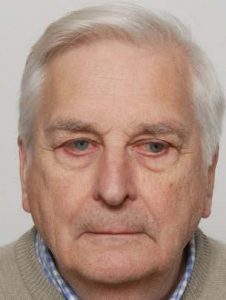point of view. Maverick President Tayyip Erdogan has been re-elected with a majority of around 52.5% over the more Western compatible opposition coalition, led by Kemal Kilicdaroglu.
By Robert Harneis
Erdogan is now the longest serving Turkish leader since Kemal Ataturk, the founder of modern Turkey, after the crushing defeat of the Ottoman Empire by the British and French in World War I. The formal result will be declared on June 1.
Erdogan kept his cool during the interval between the two rounds. He campaigned confidently despite an illness and improved his image by successfully extending the grain deal between Ukraine and Russia, as well as celebrating the first delivery of nuclear fuel to the Akkuyu nuclear power plant. This event announced Turkey’s accession to the atomic club of countries. Note that both events depended for their convenient timing on Russian cooperation.
Turkey joins the atomic club
At the same time he called for unity and said that opposition voters are also “the children of this people.” He expressed the hope that they would come to their senses and still vote for him. “I hope that we will walk this path together,” the Turkish leader said.
The significance of his victory was marked by the congratulations that were showered on him by all and sundry, from President Putin of Russia and the turbulent Hungarian Victor Orban, on the one hand, to Presidents Biden and Zelensky on the other. Now that the ruler of the strategically placed Turkey, with NATO’s biggest army after the US, has finally been decided, no one wants to upset him unnecessarily.
As commented in a previous article, the Russians will be relieved that there will be no loosening of the block on NATO ships entering the Black Sea or weakening of the growing economic ties with the BRICs countries. The Opposition leader Kilicdaroglu had said that if elected he would cancel the current gas hub fed by Turk stream pipeline under the Black Sea. This would have been self harm for the country on a scale matched to date only by Scholz’s Germany. One is entitled to wonder if he really meant it or if he knew he was going to lose anyway and was saying things to please Washington with a view to the future.
The Russians are relieved
In this connection the failed but determined attack, last week, on a Russian warship guarding the Black Sea gas pipeline by maritime drones, close to Turkish waters, was intriguing. Sophisticated planning, a long way from Ukraine, clearly involved NATO countries attacking the economic interest of fellow member Turkey. The gap between the two rounds of the Presidential election may have been seen as a last window of opportunity for such a high risk operation.
The Turkish government will not have been pleased at this threat to their highly profitable joint venture with Russia and a reaction has not been long in coming. It had been thought that once the elections were out of the way Erdogan would allow Sweden to enter NATO without further fuss about the Kurdish question. The Swedish government let it be known that an agreement was expected “soon”. A meeting between the two countries Foreign Ministers was due to take place but it did not happen because the Turkish minister did not attend.
Turkey says Sweden harbors members of militant Kurdish groups it considers to be terrorists and has not fulfilled its part of a deal struck in Madrid in June last year to assuage Ankara’s security concerns. Discussions between the two countries over NATO ground to a halt during the election. On the other hand, a planned telephone conversation with President Biden will no doubt go ahead.
Turkey has no reason to leave NATO
In any event it is clear that for the next five years, at least, a change of diplomatic direction back towards the West is not likely. Russia and China have much to offer economically. At the same time, Turkey has no reason to leave NATO or quarrel unduly with the EU but they are not going to be a soft touch. Erdogan’s language during the final campaign makes this clear. Speaking on May 25 he told CNN Türk “With God’s help, if we win on May 28, each of the 85 million people will win (the population of Turkey according to the latest official data). If Mr. Kılıçdaroğlu wins, then the terrorist organizations, London loan sharks and American companies will win. We must not give an opportunity to those who aim at our unity and solidarity,” he declaimed. Meanwhile his opponent replied that a vote for Erdogan would be “a sin”.
A far more urgent question for the newly elected President will be the problems of immigration, inflation and the volatile Turkish currency currently at a historical low against the dollar.
Western elites who flatter themselves that Erdogan is a passing phase in Turkish politics and that his eventual successor will be easier to deal with are likely deceiving themselves. Turkey, like much of the non-Western world is rediscovering its self-confidence and fully realizing that the West is not the only show in town. True NATO was a vital support for Turkey against Stalin’s hubristic attempts to control the strategic Dardanelles but the Soviet Union no longer exists.
Those with long diplomatic memories will recall that it was the West who tried to crush the Turkish revival after World War I and it was Moscow and the Soviet Union that provided the money and weapons for Kemal Ataturk to survive the first difficult years and the Turkish Civil War from 1919 to 1923 that accompanied them.
However unsatisfactory the West may find Erdogan today, historically he is in reality just one more in a long line of highly pragmatic Turkish leaders and diplomats working for Turkish interests.
AT #StrasbourgTurkish settlers celebrated Erdogan’s victory with Islamic prayers and Allah Akbar. pic.twitter.com/IdB94d6tbg
— Damien Rieu (@DamienRieu) May 29, 2023
